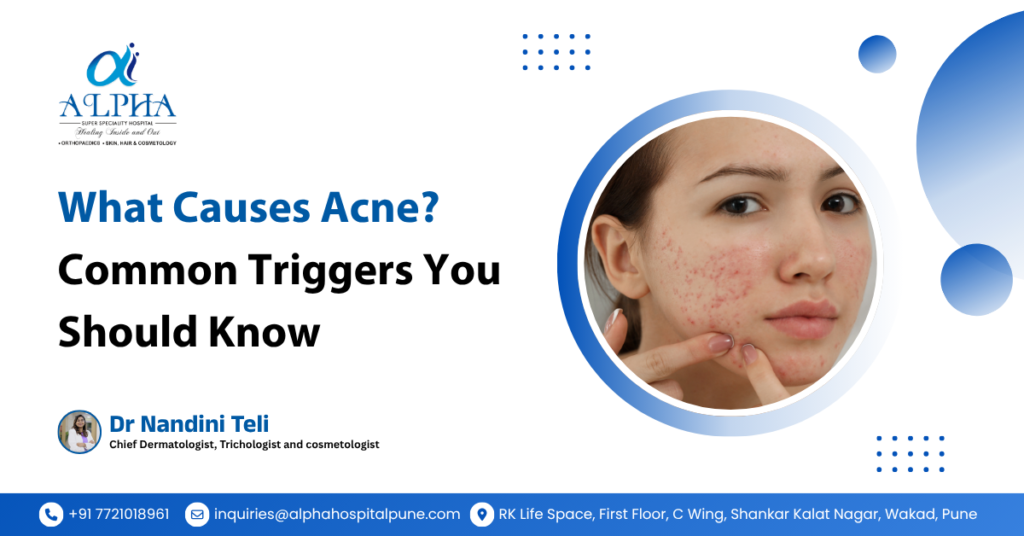Acne is one of the most common skin conditions that affects people of all ages, especially teenagers and young adults. While it’s often seen as a temporary skin issue, acne can impact confidence, self-esteem, and overall skin health if not treated properly. Understanding what causes acne is the first step toward preventing and managing it effectively.
1. Excess Oil (Sebum) Production
Your skin naturally produces oil to stay soft and hydrated. However, when the sebaceous glands produce too much oil, it can clog pores and create an ideal environment for acne-causing bacteria to grow. This leads to blackheads, whiteheads, and pimples.
2. Hormonal Imbalance
Hormones play a major role in acne formation. During puberty, pregnancy, menstruation, or conditions like PCOS, hormone levels fluctuate, leading to increased oil production and breakouts. Hormonal acne often appears on the lower face, jawline, and chin.
3. Bacteria and Inflammation
The bacteria Cutibacterium acnes (formerly known as Propionibacterium acnes) naturally lives on the skin. When pores are clogged, this bacteria multiplies, causing redness, swelling, and inflammation — resulting in painful pimples or cystic acne.
4. Dead Skin Cell Buildup
Every day, your skin sheds dead cells. If these cells aren’t removed properly, they can mix with oil and block hair follicles, leading to acne formation. Regular exfoliation helps keep your pores clean and prevents buildup.
5. Stress
Stress doesn’t directly cause acne, but it can worsen it. When you’re stressed, your body produces more cortisol, a hormone that increases oil production and inflammation. Managing stress through relaxation techniques or exercise can help reduce breakouts.
6. Diet and Lifestyle Factors
Certain foods can trigger or worsen acne in some individuals. High-glycemic foods (like sugary snacks, white bread, and soft drinks) and dairy products have been linked to acne flare-ups. Eating a balanced diet with fruits, vegetables, and plenty of water supports healthy skin.
7. Use of Wrong Skincare or Makeup Products
Using heavy, oil-based cosmetics or non-comedogenic products can clog pores and lead to acne. Always choose products labeled “non-comedogenic” and avoid excessive layering of skincare products.
8. Environmental Factors
Pollution, humidity, and sweating can all contribute to acne by trapping dirt and bacteria on the skin. Regular cleansing, especially after outdoor activities, helps keep your pores clean and healthy.
How to Prevent Acne: Expert Advice from Dr. Nandini Teli
- Wash your face twice daily with a gentle cleanser.
- Avoid touching or popping pimples.
- Use dermatologist-recommended skincare products.
- Maintain a healthy, balanced diet.
- Get enough sleep and manage stress effectively.
When to See a Dermatologist
If acne is persistent, painful, or leaving scars, it’s important to consult a qualified dermatologist. Professional treatments like chemical peels, laser therapy, or prescription medications can significantly improve your skin condition.
Final Thoughts
Acne can be managed effectively with the right approach, lifestyle changes, and expert guidance. Remember, every skin type is unique — what works for one person may not work for another. A personalized acne treatment plan from a dermatologist like Dr. Nandini Teli can help you achieve clearer, healthier skin.

